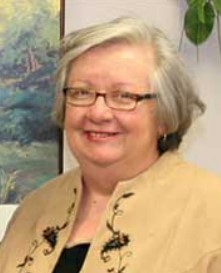Each year, the American Nurses Association (ANA) commemorates National Nurses Month in May to honor the varying roles of nurses and their unwavering commitment to patients, their communities and our healthcare systems. For 2023, the ANA has selected the tagline You Make a Difference, with each week of the month-long nursing recognition focusing on the themes of self-care, recognition of fellow nurses, professional development and community engagement. To promote these themes, join us for a month-long TESU Blog series contributed by our nursing course mentors. Week 3 focuses on professional development and how nurses can excel and lead in their nursing career or inspire and help others in their professional journey.
When most people hear the phrase “professional development,” they think of continuing education and career training. Something they have to do to stay employed.
However, confusion over what the term means can hold you back. Professional development does not only mean accumulating continuing education credits simply for the purpose of maintaining licensure or certification or meeting a requirement of some sort.
Indeed.com defines professional development as “advancing skills, traits and competencies that contribute to your success in the workplace.”
In truth, professional development can lead to a more rewarding career.
Professional Development is a Mindset
Successful professional development must be a mindset that is actively chosen. This mindset will lead to an increase of knowledge, skills and attitudes that will make you stand out. For nurses in particular, the benefits of professional development often ensure a cutting-edge understanding of legal, ethical, technological and profession-specific information.
Now, the hard part. How do you gain this knowledge and skills in a methodical way to ensure your time and money are used in the most productive manner?
Conduct a Skills Audit
I suggest performing an annual self-learning needs assessment. First, list three to five of the most important topics that are vital to your profession. Reflect on these topics using the KWL technique, that is the “Know,” “Want to Know” and “Learned.”
So, ask yourself what you KNOW about each topic. Then, what you WANT or need to know and plan a way to acquire the information or skill. When you have completed the learning activity, evaluate what you LEARNED. If the learning is not satisfactory, repeat the process using another source.
Most importantly, track your learning. This might be helpful when applying for a new position. When interviewing potential employees and all qualifications are equal, a candidate with a written record of self-directed professional learning activities could be a reason to select that person.
Effective professional development means much more than filling the requirements for continuing licensure or certifications. It opens doors to a more rewarding career!
To learn more about the nursing programs at Thomas Edison State University, visit the School of Nursing and Health Professions here.

Written by Barbara Patterson, EdD, RN
